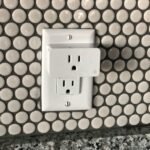FAQs – Enhancing Desktop Connectivity
Desktop power strips with multiple outlets and USB ports boost device connectivity while keeping your workspace organized and efficient.
1.
Question: What are the main benefits of using a desktop power strip with multiple outlets and USB ports?
Answer: These power strips offer both AC outlets and USB charging ports to power various devices simultaneously. They help reduce clutter and simplify charging.
Practical Tip: A good practice is to arrange cables neatly for reduced clutter.
2.
Question: How does surge protection work in these desktop power strips?
Answer: Many models include built-in surge protection that shields connected devices against power spikes. They ensure a safer charging environment during brief surges.
Practical Tip: It is often helpful to verify the surge rating on your device.
3.
Question: What is the purpose of the USB ports on a desktop power strip?
Answer: USB ports provide a convenient way to charge smartphones, tablets, and other gadgets without needing extra adapters. They support simultaneous charging alongside AC-powered devices.
Practical Tip: Consider trying to check the current output rating for efficient charging.
4.
Question: Can a desktop power strip help reduce desk clutter?
Answer: Yes, these units consolidate multiple power sources into one centralized device, minimizing the need for extra adapters and scattered cables. They promote a cleaner, more organized workspace.
Practical Tip: One effective strategy is to position the strip centrally for better cable management.
5.
Question: What safety measures should be followed when using desktop power strips?
Answer: Always adhere to the manufacturer’s guidelines and avoid overloading power strips with too many devices. They should be kept on a stable surface away from moisture to prevent hazards.
Practical Tip: Many find it useful to regularly inspect cords for wear and tear.
Need more detail? Read the full article


